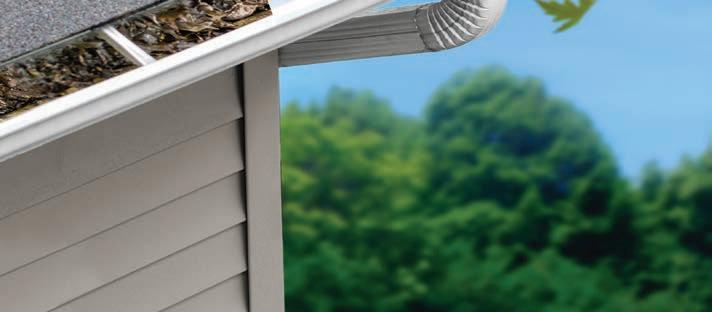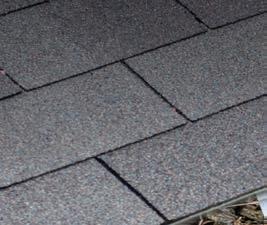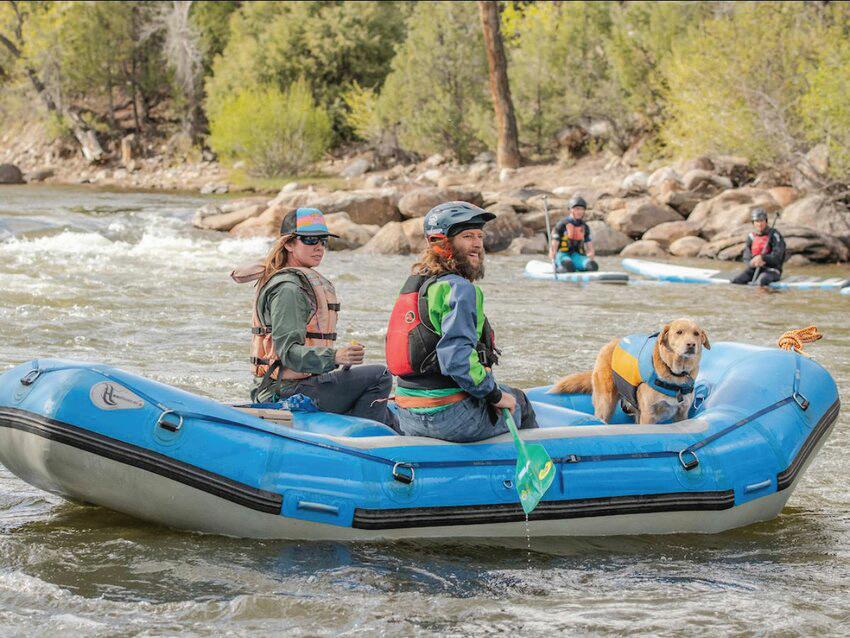
5 minute read
Surpassing expectations for learning disabled students
How Colorado is trying to get more students with intellectual disabilities into college
BY ERICA BREUNLIN THE COLORADO SUN
Shannon Murphy grew up being told what she couldn’t do, what she wasn’t capable of and what kinds of opportunities weren’t hers to pursue.
Adults around her mapped out her future. Even her own case manager steered her away from higher education.
College wasn’t a possibility for a student with a learning disability like her, Murphy remembers being warned.
“For like 21 years of my life, I didn’t think I was actually a person because I had a disability and I wasn’t an equal because I had a disability,” Murphy said. “I thought it was a curse that I had what I have, and that’s 100% not true, but that’s just unfortunately how I thought.”
Now, at age 25, Murphy has shattered the expectations of those who once insisted college was out of her reach, graduating from the University of Northern Colorado’s Go On and Learn program in 2022 and working as a paraprofessional in her hometown, Grand Junction. Murphy, who has a genetic disease known as incontinentia pigmenti, is one of 44 students with intellectual disabilities to have graduated from a Colorado college or university since 2020 through a growing movement to open up more higher education opportunities for students with intellectual disabilities, such as Down syndrome and autism.
“I personally believe anyone can do anything,” Murphy said. “You just have to have the mindset to do it.”
Colorado’s rst inclusive program started in 2016, making the state one of the last to introduce higher education speci cally for people with intellectual disabilities — the rst inclusive program in the state started in 2016. Four institutions of higher education at’s where they would get their primary case manager to help them gure out ways that they can participate in the community, but a lot of our students in reality end up on their parents’ couch right after K-12. ey feel like there’s not a lot of options for them.”
— UNC, Arapahoe Community College, the University of Colorado Colorado Springs and Regis University — now o er such programs, which disability advocates will build on with a new round of state funding that will fuel a grant program aimed at developing more inclusive programs statewide, particularly in rural parts of Colorado where students with disabilities face an especially limited set of options after high school.
“ e language that you hear from families is it feels like a cli ,” said Shayna Laing, community engagement manager of IN! Pathways to Higher Education, a Colorado-based nonpro t that directs families and special needs educators to higher education programs designed for students with intellectual disabilities. “So in an ideal world, they’re going to be connected to these state services like a community center board.
And many jobs available to those students are “pretty simplistic in nature,” with positions in grocery stores, for example, Laing noted, “so it feels like this big dropo and like there’s nothing to do afterwards.”
IN! Pathways to Higher Education helped roll out pilot programs at UNC, UCCS and Arapahoe Community College after the legislature in 2016 designated $250,000 in state funding each year for ve years. After that funding sunsetted in scal year 202021, lawmakers created a grant program with legislation during this year’s session, allocating $450,000 each year for ve years to further expand higher education opportunities for students with intellectual disabilities.
IN! Pathways to Higher Education, which is distributing the grant funding, has partnered with Colorado State University and Metropolitan State University of Denver to bring inclusive higher education programs to their cam -
Turn To The Colorado Sun For News Across The State


The Colorado Sun is a journalistowned, award-winning news outlet that strives to cover all of Colorado so that our state — our community — can better understand itself.
In this way, The Sun contributes to a more vibrant, informed and whole Colorado.
The Sun, launched in 2018, is committed to fact-based, in-depth and nonpartisan journalism. It covers everything from politics and culture to the outdoor industry and education. puses and plans to help two other institutions in rural Colorado form their own programs in the next year. e nonpro t will open its next application cycle in January.
Now, The Colorado Sun co-owns this and other Colorado Community Media newspapers as a partner in the Colorado News Conservancy. The Sun is CCM’s partner for statewide news.
For Colorado Sun stories, opinions and more, and to support The Sun’s misssion as a member or subscriber, visit coloradosun.com.

“We found that the rural communities really experienced lots of fear with sending their child over the mountain or over the hill, as they say,” Laing said. “And so we realized that there was lots of limitation for those students in those pockets of Colorado, and when we talk with disability service providers out there, the ongoing message is, there’s not enough services in our area. Our students are struggling. Transition programs are struggling. We don’t know what to do with them after they graduate.”
Students who graduate from an inclusive higher education program in the state spend between two and four years in college studying whatever elds most interest them and earn what’s called a comprehensive higher education certi cate, which indicates they completed modi ed coursework and re ects their transcript, Laing said. at certi cate isn’t on par with an associate’s or a bachelor’s degree, she noted, but it is a formal certi cate approved by a higher education institution that documents a student’s course of study and the skills they’ve developed.
Colorado students enrolled in inclusive programs navigate through higher education in many of the same ways as any college student. ey rush sororities and fraternities. ey live independently in apartments and attend social events on campus. ey take classes with typical peers, participating in class discussions and completing assignments, often with adaptations that might include shorter papers. ey also receive extra academic support, hang out with peer mentors who help them get involved on campus and adapt to living on their own, intern and gain work experience, and connect with local vocational rehabilitation services through which a counselor gives them ongoing employment support after graduation.
Laing has seen inclusive college programs completely reroute students with intellectual disabilities, with several graduates continuing to live independently, earning better pay in more meaningful careers and deepening friendships in their own social circles.
“It’s showing what happens when we raise the bar,” Laing said. “For students with intellectual disabilities, they do get to reach it. ey are capable of those things, and I think our culture has just never chosen to raise the bar, and once we do, we see them really excel and, yes, struggle and have battles along the way, but they persevere.”
Nineteen students with intellectual disabilities have graduated from UCCS since 2016 with another 20 students currently enrolled, studying a wide range of disciplines including criminal justice, teaching, library studies, life sciences, sports management, lm editing and human services.
Students with intellectual disabilities who take classes through the university get support from the O ce of Inclusive Services, completing 72 credits over four years — three classes each semester — and seeking out internships both on and o campus. ey also must attend social events of their
SEE STUDENTS, P30









